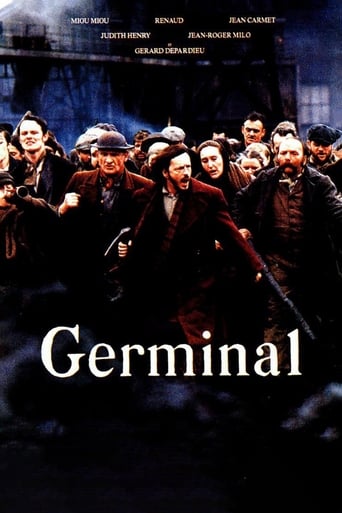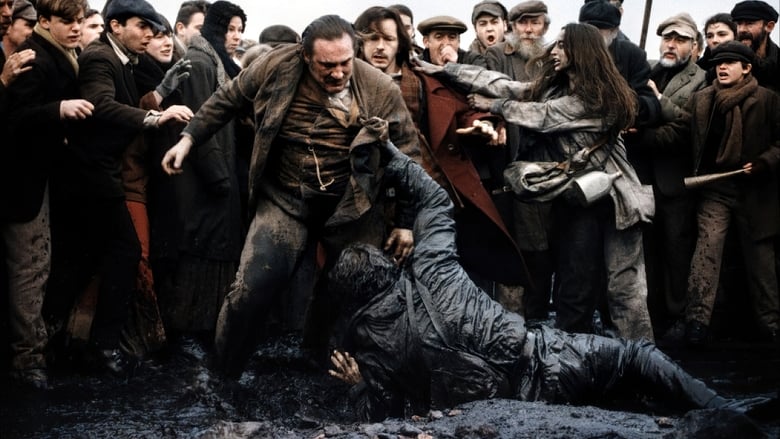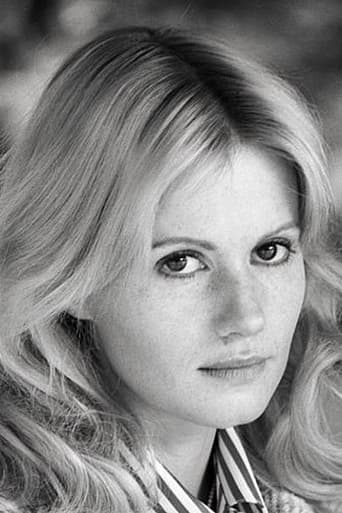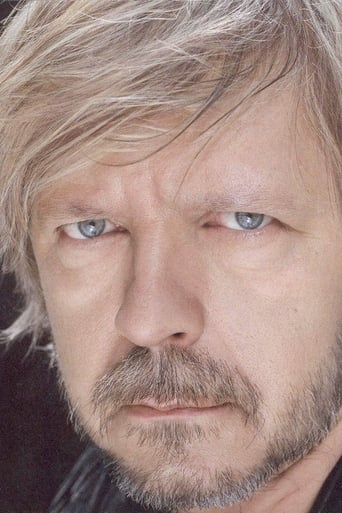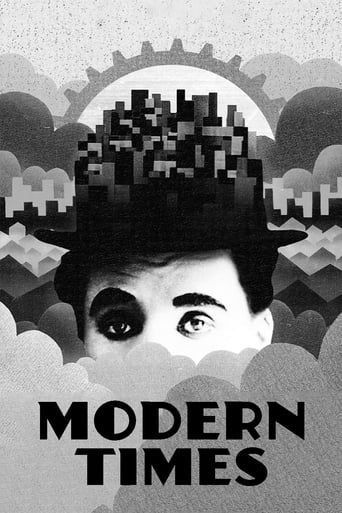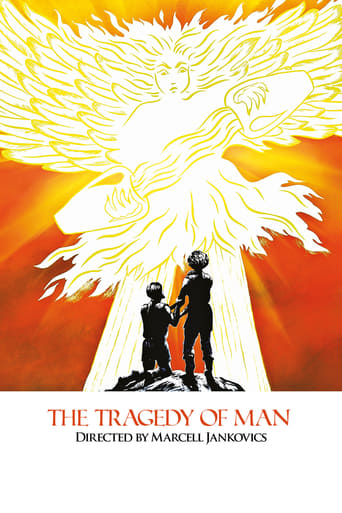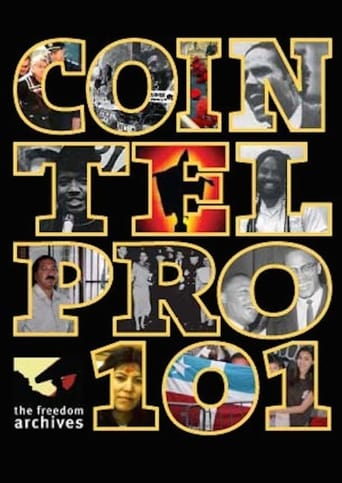Germinal (1993)
It's mid 19th century, north of France. The story of a coal miner's town. They are exploited by the mine's owner. One day the decide to go on strike, and then the authorities repress them.
Watch Trailer
Cast


Similar titles
Reviews
Prior to this most recent cover of Emile Zola's novel by Claude Berri, they were various renderings on the silver screen before. A silent version was shot in 1913 and remains difficult to watch. In 1962, Yves Allégret's version of Zola's sprawling novel followed very closely the thread of the storytelling which came to the front while the descriptions of the working-classes and the upper classes took a back seat. 30 years later, Berri got down to a new transposition of the novel to the screen to locate her in the vein of French heritage. Developed by the Mitterrand government, this trend spawned films which were meant to be a popular quality cinema facing American blockbusters and to show French culture in literature at key-moments in French history. This movement was at its peak at the dusk of the eighties and the dawn of the nineties with "Jean De Florette", "Manon Des Sources" (1986), "Cyrano De Bergerac" (1990) or "Madame Bovary" (1991). Generally, these films were financially profitable but weren't up to scratch from an artistic perspective. "Germinal" belongs to this category. Probably the most famous installment in the Rougon-Macquart saga, "Germinal" is also one of the most potent French novels ever written. It was a perilous task to transpose it to the screen and Berri partially did well his job. His film follows very closely the staple framework of the novel and only keeps its main installments including some grisly ones (the sequence of the castration). Hence a simplified and watered-down version in which certain moments are clumsily linked up. Overrall, Berri's piece of work joins the list of films derived from novels in which to be as faithful as possible to the basic work can hamper the artistic potential of the film.Before being a filmmaker or an actor, Berri is especially labeled as a producer and for "Germinal" which was partly sponsored by French government, he had a Pharaonic budget at his disposal to reconstitute a prickly era of French history. Lavish costumes, an authentically built pit village are clear signs of this budget. Places, manners and the living standards of the proletariat and the bourgeoisie which encompassed deep inequalities are faithfully depicted in a hard-hitting way. There's a noticeable detail during the party: the fight between the cocks is an evident metaphor of the class struggle. A blatant gap between the stark pit village, especially the dour house of the Maheu and the lascivious residences of the Gregoire is enhanced by a photography with evocative colors. Berri faithfully captured Zola's novel and his budget was up to scratch to the demands of the novel. But as I mentioned above, Berri is first and for most of a producer. As a filmmaker, his job remains limited to make him go in the restrained circle of the seminal contemporary French filmmakers. Zola's ground-breaking sweep also encompassed a plea in favor of the working classes who lived in squalor and a condemnation of the bourgeoisie in their posh universe. These features are perceptible in Berri's film but that's all. The director contents himself to shoot the watershed and momentum moments of the book without developing his own perception or bringing his personal touch. Berri is unable to create a cinematographic language to render the strength of the most harrowing or blackest moments in the novel. That's why his directing has an academic feel. So, the most blackest aspects of Zola's novel vanish on the screen. In the sequences after the strike, the writer depicted in an incredible harsh style, the Maheu's tawdry conditions and their bigger misery caused by the fiasco of the strike but one doesn't really feel this misery. Then, on the scene when Maigrat the greedy shopkeeper gets emasculated, Zola wanted to raise the wild side of the miners, especially women and it's not palpable in spite of the commendable efforts of the actresses.The cast gathers a bevy of actors who are representative of French cinema but certain choices are debatable for different reasons. Renaud, one of the most popular and finest contemporary French singers plays his game well as the lead Etienne Lantier but he was a little too old for the role. On the paper, Lantier was about 20-25 years old and Renaud was in his forties when he acted. Beside him, Gérard Depardieu is physically Maheu but his character is psychologically subdued than in the book. The frail Miou-Miou wasn't the ideal actress to epitomize the stout and weakened Maheude. But Laurent Terzieff, a very ambitious thespian only appears for about a quarter of an hour in the whole film but effectively taps his little underwritten part. He just has to pronounce little lines to unveil his great skills of actor. The same goes for Jean Carmet whose character name and moniker, "Bonnemort" (good death) took an ironic dimension when he passed away shortly after the movie reached the streets. Jean Roger Milo was ideally cast as coarse, hairy Chaval.I don't want to demean Berri. His movie is thoroughly watchable but it is proof that Zola's work needs something else on the screen. His simplified cover hardly does justice to Zola's potent cry of revolt. It is at best mildly entertaining and for the non- speaking French viewers, it can be gratifying but for the French viewers who are Zola insiders, it might be a little frustrating. But it didn't stop this epic movie to ride high in the French box-office and to line Berri's pockets.
"Germinal" (French, 1993): This EPIC story, adapted from Emile Zola's novel and put to film by Claude Berri (director of "Jean de Florette" and "Manon of the Spring"), is the gritty depiction of hard working coal miners in 1800's France, trying to eek out a living and better their lives by forming a labor union. Loaded with issues rising through the Industrial Age, Gerard Depardieu, Miou-Miou, Judith Henry, and Jean-Roger Milo deservedly star in a frighteningly bleak setting, with ominous musical scoring, and the relentless, black dust of coal. Comparisons to the wealthy mine owners lives, opulent and very isolated from their industry's realities, are blatant and clear. Zola wanted some economic and moral balance even just a little and set about depicting a situation that could not be denied.
I've never been interested in costume drama's that deal with 18th and 19th century high society. As I once said before in another review: "There is just too much gold foil, too much ugly wigs and pompous costumes, too much over the top decors, just too much of everything that I detest in it" and I really haven't changed my idea about that so far. But when I'm able to see a movie that deals with the life of the ordinary man in that time period, than I'm always willing to give it a chance."Germinal" is such a movie that deals with life of the ordinary man and woman. It tells the story of the coal miners in the region of Lille, in the North of France at the end of the 19th century. They are all poor, they work too hard in awful conditions and they don't get paid what they deserve by the bosses who only want to get richer and richer by doing whatever they can so they won't have to pay a cent to their workforce. Of course the miners aren't happy with that situation and when they get into contact with two men who both want to change the situation, one a communist union man and the other one an anarchist, the miners soon go on a strike, with some very unpleasant consequences as a result...What first went through my mind while seeing this one, was that this movie has a lot of similarities with "Daens" (1993), the Belgian movie that tells the story of the poor textile workers in Flanders at the end of the 19th century. It's the same time period and both regions are only about 60 miles or 90 kilometers apart. If you like to see what life in the European industrial regions at the end of the 19th century was like, than both movies are certainly something you shouldn't miss.What I liked about the movie as well was that it had a good pace and that it stayed interesting from the beginning until the end. It could have been very easy for the director to make a movie about this subject that lasted 5 or 6 hours, but than it might have lost much of its power. Now, you get a pretty good idea of what life in that region during the industrial revolution was like, without having to struggle through too many details that don't really contribute to the story. Next to the good story, I must say that I also liked the acting. Even though Gérard Depardieu hasn't always made the best choices of movies to play in, I always like him in the role of the ordinary man, the underdog that has to fight the system. I liked him in the mini-series "Les Misérables" as well and he has the same kind of role in this movie. The other actors did a fine job as well, even though I have to admit that I don't really know anyone of them, except for Bernard Fresson perhaps. All in all this is a very good adaptation of the novel by Émile Zola. It does exactly what I expected from it and that's why I give it at least a 7.5/10.
Once again Depardieu presents an arresting image. There are a few performances which do not quite keep up to his standard - otherwise the acting is first class.The sets and attention to detail are in my view the best proof of Claude Berri's worth as a double César winner. There are a few gaps (understandably) in the story. The general feeling is of a pacy and entertaining story. The message is clear and in my view is every bit as politically envigorating as Ken Loach's underated Spanish Civil War classic - Land & Freedom.If you have a leftish leaning, the graphic depiction of poverty and the slow creation of the miners' collective movement will probably leave you with a lump in your throat. It could just as well leave you feeling that the message is overplayed.All in all, the film has everthing and cannot fail to arouse emotion. A bravura creation which should not be missed.A definite 8/10

